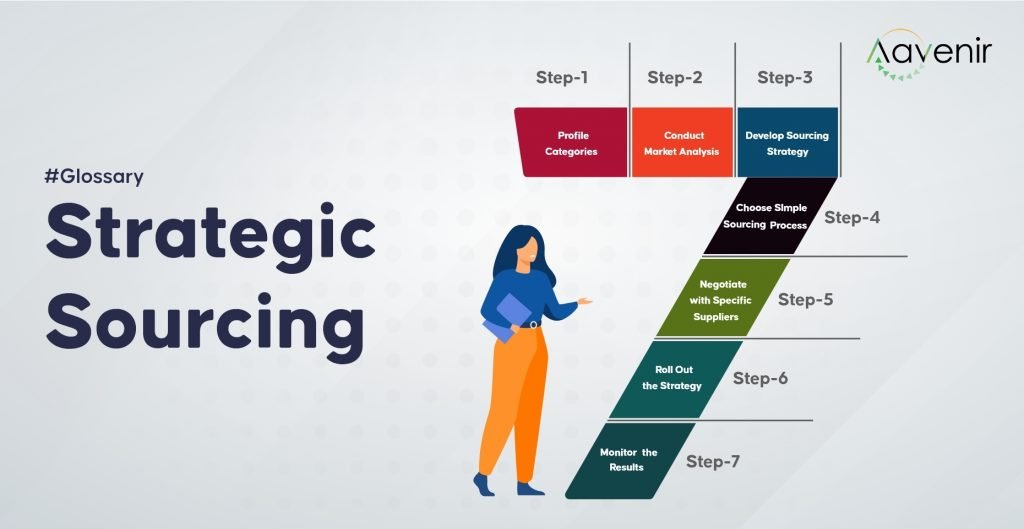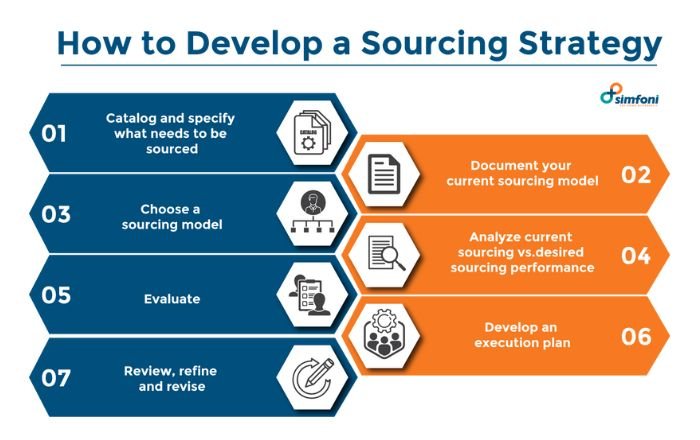Role of a Strategic Buyer: Definition, Advantages, and Comparison with Other Buyers
The buying process is a key component of any successful business. It requires skill, strategy, and experience to ensure that the company makes cost-effective purchases with minimum risk.
In this article, we will explore the role of Strategic Buyers – what they do and how their skills can benefit your organization in multiple ways.
We’ll also take a look at other types of buyers such as Tactical and Operational ones so you become familiarized with all three roles then learn more about them from examples of real-life uses for each buyer type.
This piece provides facts on great training or education paths those interested may pursue if looking towards becoming one!
Contents
What is a Strategic Buyer?
A strategic buyer is a professional in charge of planning, overseeing, and negotiating purchasing activities that involve long-term commitments or significant investments by the company.
They are tasked with analyzing market trends to identify areas where cost savings can be achieved when procuring resources necessary for operations.
Strategic buyers play an important role in ensuring stable supplies at competitive prices throughout any sort of procurement process, from selecting vendors to negotiating specific terms and conditions throughout projects over extended periods of time.
Importance of strategic buyers in the buying process

A strategic buyer is an individual or team that plays a central role in organizational purchasing decisions. Strategic buyers are typically responsible for identifying and evaluating vendors, developing supply chain partnerships, negotiating cost savings, and securing long-term agreements with suppliers.
As such, they have considerable influence over the organization’s overall profitability since their decisions can significantly impact costs associated with production materials or services purchased from third parties.
As a result, organizations rely heavily on these individuals to make sound business choices geared toward procurement efficiency and value optimization.
Characteristics of a strategic buyer
- Plays a crucial role in the purchasing process, by having an understanding of both current market trends and the company’s long-term financial goals.
- Employ creativity and innovation to effectively manage their budget while seeking out cost savings from suppliers.
- Conduct extensive research into future developments within various markets, ensuring they remain up to date with industry knowledge.
Furthermore, strategic buyers have excellent negotiation skills which enable them to craft advantageous deals for their companies on large purchases or contracts over multiple years in duration.
Advantages of a Strategic Buyer
1. Cost savings and efficiency
A strategic buyer can bring numerous advantages to the purchasing process, including cost savings and efficiency. Strategic buyers are focused on establishing long-term relationships with suppliers that allow them to negotiate better deals as well as ensure a consistent supply of quality products at an affordable price.
Additionally, they strive for maximum value in their purchases by shopping around for different options before making final decisions. In this way, strategic buyers help organizations save money by reducing costs associated with sourcing materials or services while increasing profit margins due to the optimization of resource usage within budget constraints.
2. Long-term perspective and planning
A strategic buyer’s foremost advantage is their ability to look at the long-term needs of an organization. Strategic buyers can assess both current and potential demands, anticipate upcoming trends or opportunities in the market, create plans for them to address these needs effectively over time, and ensure that enough resources have been allocated towards meeting those objectives.
This enables organizations to remain competitive by minimizing costs in certain areas while taking full advantage of any new opportunities encountered along the way – all without compromising quality standards or service levels.
3. Better negotiation power
Better negotiation power is one of the key advantages that a strategic buyer has in comparison to other buyers. Skilled strategist can use their knowledge and experience to gain financial benefits for their company during negotiations with suppliers.
Through leveraging tactics such as detailed research, innovative solutions, bargaining skills, and creating competition among different vendors they are able to obtain better prices or payment terms on products/services being purchased thereby delivering cost savings & efficiency ultimately leading toward the overall benefit it brings them out of already hard-fought negotiations.
4. Mitigation of risks
Mitigation of risks is a huge advantage that strategic buyers bring to the buying process. Strategic buyers are able to use their skills and knowledge not only while negotiating but also throughout the entire purchasing cycle, including product sourcing and quality control measures. They can identify areas of risk proactively by evaluating products according to selective criteria based on industry standards or regulations.
In addition, through long-term relationships with suppliers, they gain insights into new market trends which helps in developing strategies for further reducing potential risks related to purchases such as disruption of supply due to changing prices or availability issues caused by technological shifts.
5. Enhanced supplier relationships
Enhanced supplier relationships are a major advantage for strategic buyers. Strategic buying involves understanding the needs, objectives, and activities of both parties involved in order to create mutually beneficial agreements that add long-term value for each company.
Due to its 360-degree view across all departments such as operations, finance & IT, strategic buyers are able to match suppliers’ capabilities with corporate objectives for sourcing decisions leading to efficient supply chain management practices throughout their organizations over time.
This enables better communication between supply partners; which leads towards increased trust and collaboration during projects–allowing them greater flexibility on timelines while minimizing costs through shared responsibility models.
Comparison with Other Buyers
1. Operational buyer
Operational buyers are focused on day-to-day procurement and purchasing decisions. This includes price negotiations, supplier selection, purchase order creation, delivery schedules etc.
Unlike strategic buyers who tend to focus on long-term value generation from the supply chain(cost savings/efficiency) through steps like suppliers’ assessment based on certain parameters such as performance metrics or pricing; operational buyer’s goals remain more shortsighted though they still influence their organization by optimizing costs via diligent negotiation of prices with vendors but lack a longer time frame perspective that is expected out of strategic buying activities in an enterprise environment
2. Tactical buyer
Tactical buyers play an important role between strategic and operational buyers in the procurement process. They deal with complex, highly visible projects that are short-term but require greater attention to detail while ensuring they stay within budget.
Tactical buying requires agility, market intelligence, supplier relationships management skills, and a good balance of analytical capabilities as well as negotiating power to ensure quality products or services at optimal cost without sacrificing time constraints set by higher-level stakeholders.
As tactical buyer’s needs can change rapidly depending on business strategies implemented tactics must be tailor-made to fit each project quickly – ideally analyzed during intense meetings involving fewer senior executives than usual who will then define future requirements for purchasing agents following their directive closely in order minimize risks throughout entire transactions duration until completion.
3. The key differences between strategic, operational, and tactical buyers
The key differences between strategic, operational, and tactical buyers lie in their primary focus.
Strategic buyers are driven by the long-term objectives of the organization, while operational or tactical ones prioritize short-term needs within budget limitations.
While a strategic buyer looks to maintain relationships with suppliers for future products or services needed at an optimum cost, operations and tacticians will search for the lowest bids on specific orders without considering other concerns such as quality standards.
Thus when it comes to large transactions spanning several years outside usual parameters more often than not only a skilled strategic negotiator is a suitable choice.
VI. How to Become a Strategic Buyer

1. Skills and competencies required
To become a strategic buyer, it is essential to possess strong analytical skills and demonstrable competencies related to market assessment processes. Additionally, knowledge of critical success factors and the ability to negotiate complex deals are important attributes for someone in this role.
Further training may be necessary depending on achievement goals including academic qualifications such as MBA or CPP certifications can assist with professional growth within organizations. Ultimately mastery over the concepts associated with global procurement practices will give an employee the required tools needed to succeed at becoming a strategic buyer both now and into their future career plans.
2. Training and education opportunities
For those looking to become strategic buyer, there are various training and education opportunities that can provide the skills needed for this role.
Data science courses or certifications in procurement management systems would be beneficial along with mastering key areas such as cost reduction strategies, supplier evaluation metrics, and negotiation tactics among others.
Additionally, specialized degrees like an MBA in Supply Chain Management may also come into play when aiming at becoming a successful strategic buyer., Moreover getting professional experience from internships or other related job experiences is highly recommended before applying for any full-time position.
3. Career paths and advancement opportunities
Depending on your background, business experience, and formal education there are various paths you can pursue to become a strategic buyer. Professionals with relevant degrees in finance, procurement, or logistics can begin by working positions such as purchasing agents followed by roles of increasing responsibility that culminate into positions like supply chain director which is held oftentimes at the senior executive level depending upon organization size and structure.
Those without these educational qualifications but who have significant industry-specific skillsets may leverage their expertise from within operations departments until they reach sufficient proficiency for more complex levels of decision-making within an organization’s buying department.
There are courses available geared toward developing the advanced knowledge base necessary for this role alongside certifications offered through professional associations Additionally career advancement opportunities exist in areas like consulting where professionals offer third-party advice on strategy formulation related entirely to components affecting sourcing decisions.
Conclusion
In conclusion, a strategic buyer plays an important role in modern business practices. They are responsible for sourcing goods and services that meet their organization’s long-term needs while taking steps to minimize acquisition costs and risks associated with the buying process.
Strategic buyers have qualities such as cost savings efficiency, long-term perspective, and planning ability, enhanced negotiation power between organizations’ suppliers’, better supplier relationships -all of which provide them advantages over other types of buyers.

Ryan Nead is a Managing Director of InvestNet, LLC and it’s affiliate site Acquisition.net. Ryan provides strategic insight to the team and works together with both business buyers and sellers to work toward amicable deal outcomes. Ryan resides in Texas with his wife and three children.